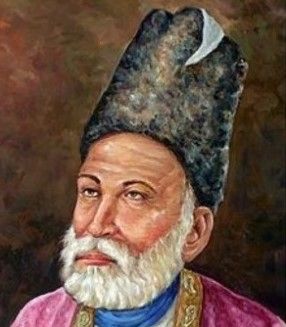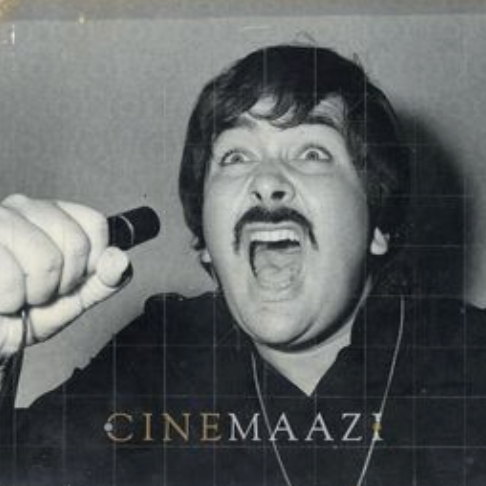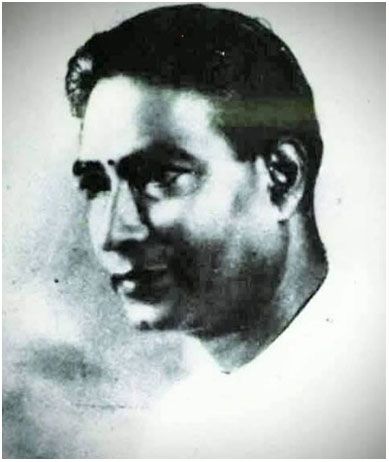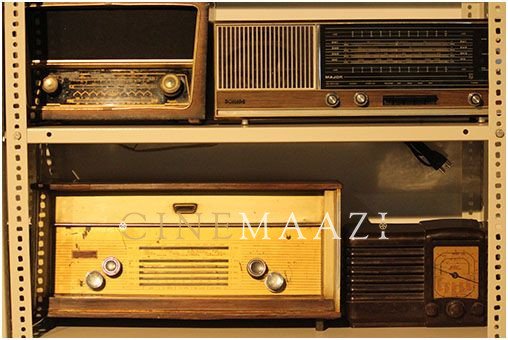R C Boral

Subscribe to read full article
This section is for paid subscribers only. Our subscription is only $37/- for one full year.
You get unlimited access to all paid section and features on the website with this subscription.
Not ready for a full subscription?
You can access this article for $2 , and have it saved to your account for one year.
- Real Name: Raichand Boral
- Born: 19 October 1903 (Kolkata)
- Died: 25 November 1981 (Kolkata)
- Primary Cinema: Bengali
- Parents: Lal Chand Boral
Raichand Boral was an influential Indian composer, often hailed as the pioneering figure of Indian film music. Born the youngest son of famous classical musician Lal Chand Boral in 1903, he received training in music by stalwart musicians from Rampur and Gwalior. Initially trained as a tabla player, he soon transitioned into a larger role. He joined the Indian Broadcasting Co. in 1927 as the producer of Indian music programmes. But he found success only when he joined New Theatres in 1931. He scored the live music for silent films like Charu Roy’s Chorekanta (1931) and Prafulla Roy’s Chasher Meye (1931). The next two decades were crucial, not only for Boral’s individual career, but for the history of Indian film music.
Boral, along with Pankaj Mullick and Timir Baran, composed some of the most enduring tunes of pre-Independence Indian cinema. The song Prem nagar banaoogi ghar mein from Nitin Bose’s 1934 Hindi remake of Chandidas, with its melodic infusion of ghazals with 19th century Bengali rhythms proved to be a major hit. He also composed for films like Premankur Atorthy’s Yahudi Ki Ladki (1933), P.C. Barua’s Devdas (1935), Debaki Bose’s Bidyapati (1937) and Sapurey/Sapera (1939) and Rajat Jayanti (1939), Phani Majumdar’s Street Singer (1938), Nitin Bose’s Dhoop Chaon/Bhagya Chakra (1935), Didi/President (1937) and Lagan/Parichay (1941).
Further, Boral enjoyed a fruitful composing partnership with Pankaj Mullick for films like Barua’s Devdas, Grihadaha (1936) and Nitin Bose’s Didi/President. Significantly, he had a decisive role to play in the beloved tradition of playback singing in Indian cinemas. He is credited with having introduced the technique for the first time in India in Nitin Bose’s Dhoop Chaon/ Bhagya Chakra, thereby eliminating the necessity for actors to be talented singers. Boral also had a brief stint as director, helming a short animation film Pear Brothers. He founded the independent MLB Productions with actor Shyam Laha and Amar Mullick.
Boral is not only remembered for his evergreen hits but his importance in shaping the careers of the singing stars K.L. Saigal and Kanan Devi as well. Saigal was recruited by B.N. Sircar, the owner of New Theatres, upon Boral’s recommendation. Much of Saigal’s musical persona would be shaped by the harnessing of his tremendous vocal ability by the likes of Boral, Pankaj Mullick and Timir Baran. Boral and Saigal together gifted us with eternal classics like Babul Mora from Street Singer/ Saathi (1938) and Ek Bangla Bane Nyara from Didi/President (1937). Kanan Devi, one of the earliest stars on the horizon of Indian talkies, considered Boral her true teacher. They worked together in the films Bidyapati, Sapurey/Sapera, and Parichay/Lagan. His compositions would be a focal point in establishing the character of the Indian romantic artist in Nitin Bose’s Parichay/Lagan (1941). Played by Dilip Kumar, this trope of the anguished artist would later be deployed by Guru Dutt in Pyaasa (1957).
Boral introduced a hybrid modern form of music in Indian cinema. In his work, various forms like the ghazal, thumri, keertan, akhrai and kabigaan would be accompanied by string sections of sitar and violins. Boral established a fusion style of north meets east, setting a precedent for culturally hybrid forms of music in popular cinema. Its classical yet accessible form fit the popular mythologicals and saint films produced by New Theatres like a glove.
Raichand Boral was the recipient of the Dadashaheb Phalke Award, the highest honour in Indian cinema, in 1978. Anil Biswas would go on to declare him the Bhisma Pitamaha (Founding father) of Indian film music. He left behind a legacy of music whose standards have hardly been met since then.
References
Image courtesy: medium.com







.jpg)



